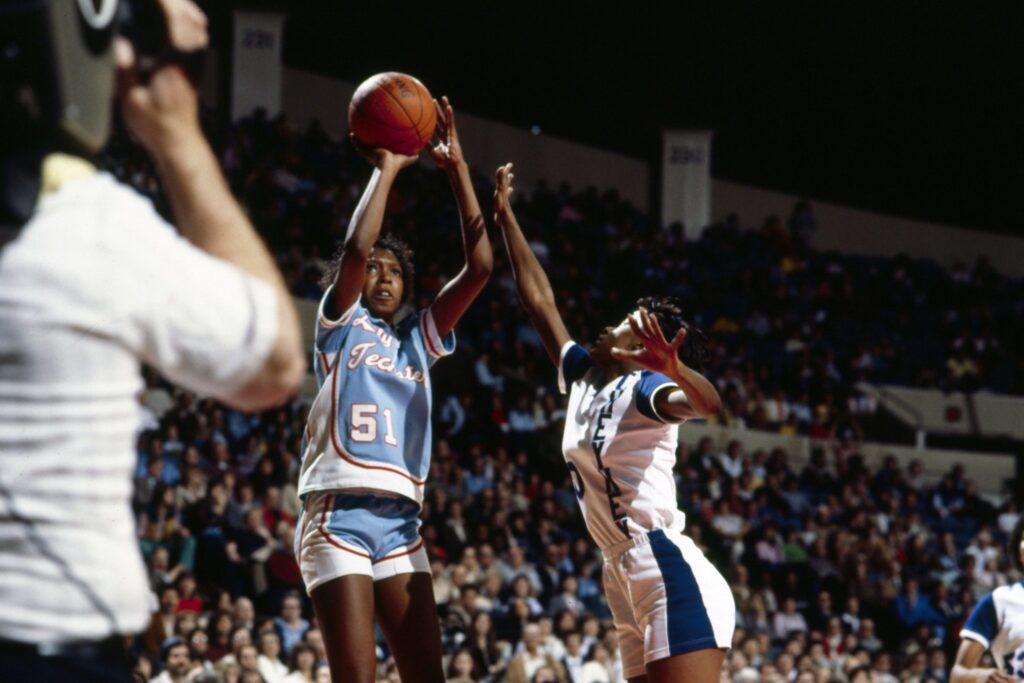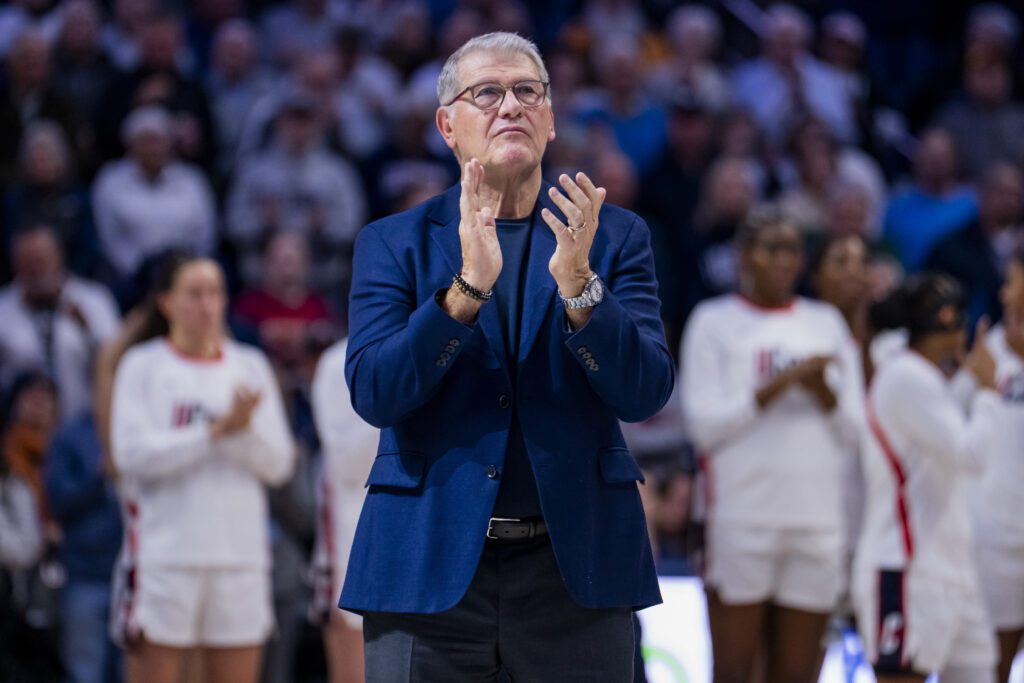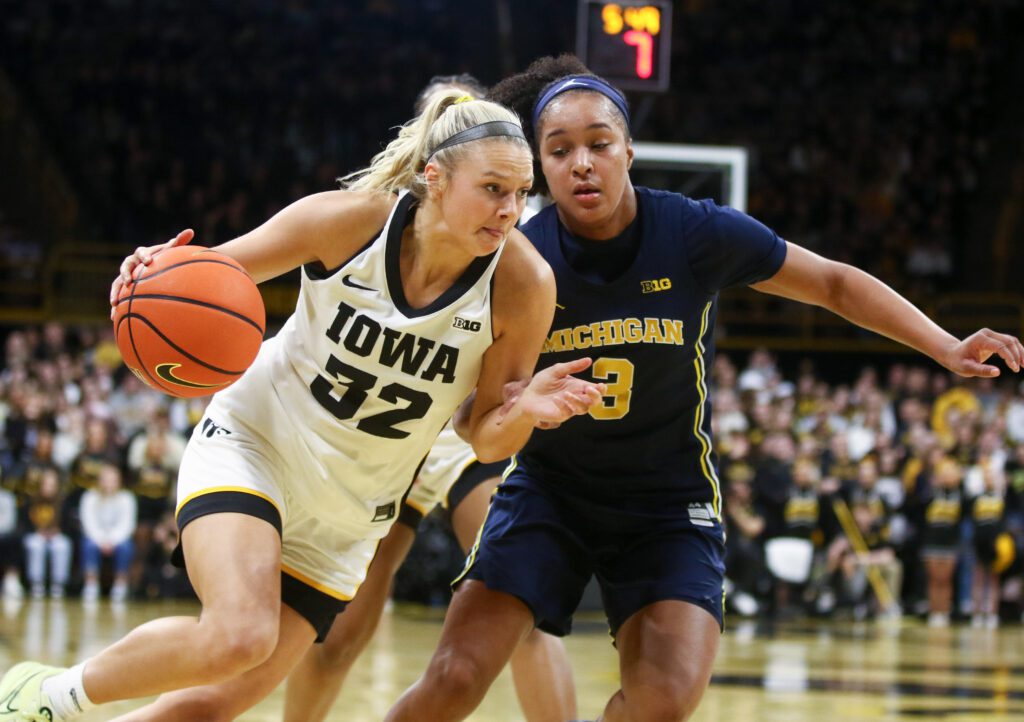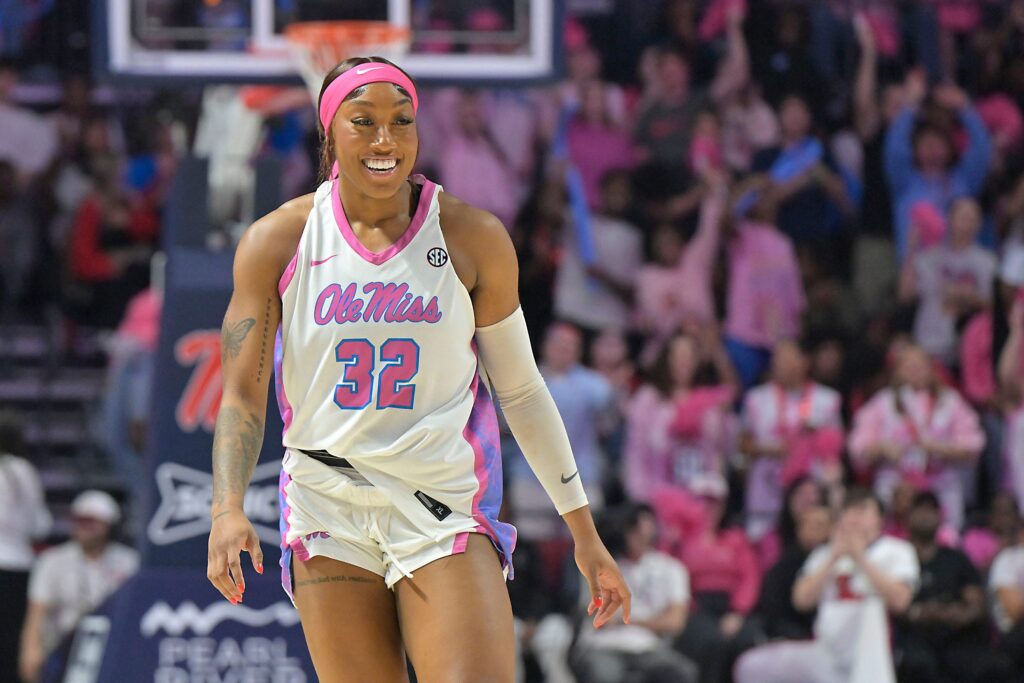The moment Boe Pearman stepped foot on the court in Norfolk Scope Arena before the start of the 1982 NCAA Women’s Final Four is cemented in her memory. Gleaming wooden bleachers lined the court. Fans filled the gymnasium. Reporters and television cameras jockeyed for space.
When Pearman paused to look around, she felt the electricity in the arena.
“It was a ‘wow’ moment,” says the former Maryland starter. “Wow, this is what coach was talking about.”
To this day, Pearman can still see the crowd and hear people cheering. She also remembers her coach, Chris Weller, emphasizing the significance of the first NCAA Final Four in women’s basketball history in the lead-up to the event.
“There were Final Fours before, and there’ll be Final Fours after, but we were gonna be the very first NCAA Final Four,” Pearman recalls Weller saying. “And what a great opportunity that would be for our team, and program, individually, et cetera, to be in that historical moment for the growth of women’s basketball.”
Before 1982, Division I women’s national basketball tournaments were organized and held by the Association for Intercollegiate Athletics for Women (AIAW). Starting in 1971, and accelerating in conjunction with Title IX in 1972, the AIAW endeavored to establish a foundation for growth, evolution and a pathway to equality for women’s collegiate sports — functioning similarly as the NCAA did for men’s sports.
The AIAW successfully raised the platform and created opportunities for women athletes, but it lagged behind the NCAA in funding and television contracts. That would play a crucial role in 1982 when the NCAA opted to hold its first women’s basketball tournament. Not every school was on board, but when 17 of the top 20 programs — including Louisiana Tech, Tennessee, Old Dominion and Maryland — decided to participate, it signaled the beginning of the end for the AIAW and the start of something bigger.
“It was a huge step,” says Tanya Haave, a sophomore for Tennessee at the time. “You’re there with the men, and all that. The biggest thing was it provided that credibility.”
Haave, now the head coach of the Metropolitan State University at Denver women’s basketball team, didn’t grasp the significance of it back then. She was a young college athlete under the tutelage of legendary coach Pat Summit and was focused on playing basketball.
“We had actually been in a Final Four the year before, and it was with the AIAW,” Haave says. “At the time, I guess I didn’t really know what I didn’t know. So we’d been in a Final Four, but I think you could definitely feel a difference now that the NCAA had taken over, in terms of the resources committed to it and the marketing with it. And it seemed to be a level above.”
In 1981, C. Vivian Stringer attended an event for the Women’s Basketball Coaches Association as the head coach of Cheyney State. The topic of participating with the NCAA was brought to the table. Other sports had already combined AIAW and NCAA tournaments and events, including gymnastics, softball and golf.
“We had a meeting, and they were discussing the fact that they believed that the NCAA only wanted to take over women’s sports because of the Title IX issue,” Stringer recalls. “And they were saying that as soon as Title IX came up, that we would not get an opportunity to have our voices heard, and that basically the guys would go ahead and take over and there would be nothing left.”
She spoke up about the lack of bigger venues and advertising at AIAW tournament games. The room went silent. Afterwards, other coaches confided in Stringer that she had made a great point and they were glad she had said something.
“My father taught me a long time ago to speak my mind and don’t be afraid ever to say what I think,” Stringer says.
The upside of joining the NCAA was too enticing to ignore. It offered more funding, transportation coverage, a wider audience, larger venues, better marketing and promotion, and television contracts. The AIAW couldn’t compete, and many women’s basketball programs decided to make the leap.
Thirty-two teams participated in the inaugural NCAA women’s basketball tournament the following year. Louisiana Tech, Tennessee, Cheyney State and Maryland made it to the Final Four, hosted at Old Dominion University. The Lady Techsters were the favorites.
“Because it was the very first NCAA Final Four, everything they did, they tried to make it special for us,” says Pearman. “I remember talking to some of my teammates about it. Like, this is bigger than just going to a Final Four.”
Maryland had never been to any Final Four before, so Pearman and her teammates didn’t know what to expect. All they knew was that they were going up against a very quick and athletic Cheyney State squad.
“We knew going in it was going to be a tough game. We always tried to play Cheyney in the regular season, and we knew how athletic they were gonna be,” Pearman says. “But we thought we could go in and at least give it our best shot and see what could happen.”
The Wolves may have had the edge on the Terrapins from a basketball standpoint, but Maryland was a much bigger school with significantly more funding. Cheyney State, the first historically Black college or university (HBCU), at the time was a small school with few resources. People didn’t even know where the university was located and often asked how to pronounce it, Stringer says.
“We found our way because we were a hard-nosed team. We believed in ourselves very much. I was so proud of them, I can’t even tell you,” she says. “We didn’t have the same equipment, we didn’t even have a trainer. Our trainers were students that were studying to be trainers. We did not have anything. But we believed in ourselves.”
Stringer successfully guided Cheyney State past Maryland, 76-66. In the other semifinal, Tennessee took on Louisiana Tech. Haave, Tennessee’s forward, remembers the game all too well.
“I remember getting our rear ends kicked,” she says with a laugh. “From the post position, I think they were bigger, a little more athletic than we were. And it just seemed like we struggled with that part of the game, struggled scoring. I remember getting beat pretty handedly.”
The Lady Techsters defeated the Lady Vols, 69-46, to advance to the first NCAA women’s championship game. And on March 28, 1982, Cheyney State and Louisiana Tech tipped off in front of 7,000 fans, and even more watching on CBS.

It was exciting for everyone involved, but Stringer had more than basketball on her mind. As she looked out over the crowd, she kept thinking about her infant daughter, Janine, who was in the Philadelphia children’s hospital after contracting spinal meningitis.
“I had some ambivalence going in,” Stringer recalls. “Anytime that I practiced, I would immediately leave and go to the hospital.”
Janine’s health was “touch and go” for a while, Stringer explained, and the emotions of the situation weighed on her as she assumed her spot on Cheyney State’s sideline that day.
“My daughter was left without the ability to walk or talk or do anything. I’m grateful that she’s able to continue to live. They didn’t think she’d be able to live beyond 14 years old,” Stringer says. “As a parent, you can imagine that I’m sitting there in the midst of all this hoopla and thinking, I don’t know what to do. I was there, but I wasn’t there.”
Somehow, Stringer held it together. And even though she knew her team was smaller in size than Lousisana Tech’s, she had them believing in themselves to the fullest extent. They could shoot and they were quick. Those were the qualities that got them to the championship game, and they were the ones the team trusted in now.
The Wolves jumped out to a 22-18 lead early in the first half, keeping pace with the Lady Techsters basket for basket. Then the shots stopped falling, and Cheyney State fell behind. With Kim Mulkey running the point and Janice Lawrence leading the way with 20 points, Louisiana Tech never looked back, winning the first NCAA championship 76-62.
Despite the loss, Stringer felt pride in being part of such a historic moment.
“It’s always the first, and it’s just like anything — the first love that you have,” she says. “[I’m thinking during the game], I can’t believe that I’m here. I’m at the Scope. Wow, we are at the Scope.”
That time our friends won the first @NCAA Women’s Basketball championship in 1982 🏆@LATechWBB | #ThrowbackThursday pic.twitter.com/JXWDFfVYej
— Bulldog Basketball 🐶🏀 (@LATechHoops) August 20, 2020
Pearman returned to the Final Four in 1989 as an assistant coach for Maryland and saw how much the event had grown in just six years. Then she watched as Oregon forward Sedona Prince’s video of the weight room at the 2021 NCAA Tournament drew attention to the disparities between the women’s resources and the men’s, and momentum behind the women’s game accelerated in a way that she’d never seen before.
“I think the greatest growth came from COVID to now, because the women finally had the strength to speak up and say, ‘This isn’t OK anymore,’” Pearman says. “We’re tired of being treated less than. I think that has allowed the moment now to be magnified, and people are now doing so much more for this Final Four than has ever been done before.”
Haave sees it, too. That’s why she makes it a point to have regular conversations with her Metropolitan State players about the history of the game. She doesn’t want them to forget the trailblazers like Kay Yow, Jody Conradt, Summit and Stringer, who propelled women’s basketball to where it is today.
“I’m watching Iowa play Creighton and it is a packed house. I mean, it is awesome to see that,” Haave says of Creighton’s second-round upset win in front of a sellout crowd of 14,382 fans at Hawkeye-Carver Arena. “I think we’re at a point now, with the focus on equality and diversity and inclusion these last few years, that we’re at a tipping point.”
The Women’s Final Four has come a long way since 1982, but it’s still not valued as highly as the men’s tournament, culturally and financially. Just this year, driven by public pressure and a report detailing the undervalued business opportunities in women’s basketball, the NCAA finally allowed the use of March Madness for promotion and marketing of the women’s tournament. And based on a letter lawmakers sent NCAA President Mark Emmert earlier this month calling attention to the “inadequate progress” in addressing inequities, there’s still a lot of work to be done.
“I don’t know if I’ll see equal footing in my lifetime,” Pearman says bluntly. “We’re closing the gap, but it’s not just arenas or people in the stands. It’s game times, television opportunities throughout the entire year, and through the tournament and conference championships.”
Still, as South Carolina, Stanford, UConn and Louisville get set to compete in the Final Four in Minneapolis this weekend, Pearman know there’s a special reason to celebrate the 2022 tournament. Forty years ago, the trajectory of women’s basketball changed forever, becoming an integral part of women’s sports history and setting it up for the platform it stands on today.
“We all get together on occasion and we still brag about it,” Pearman says. “We’re proud of it.”
Lyndsey D’Arcangelo is a contributing writer at Just Women’s Sports, covering the WNBA and college basketball. She also contributes to The Athletic and is the co-author of “Hail Mary: The Rise and Fall of the National Women’s Football League.” Follow Lyndsey on Twitter @darcangel21.




